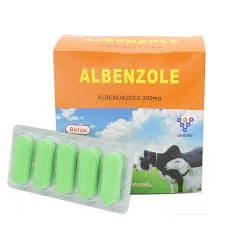- Afrikaans
- Albanian
- Amharic
- Arabic
- Armenian
- Azerbaijani
- Basque
- Belarusian
- Bengali
- Bosnian
- Bulgarian
- Catalan
- Cebuano
- Corsican
- Croatian
- Czech
- Danish
- Dutch
- English
- Esperanto
- Estonian
- Finnish
- French
- Frisian
- Galician
- Georgian
- German
- Greek
- Gujarati
- Haitian Creole
- hausa
- hawaiian
- Hebrew
- Hindi
- Miao
- Hungarian
- Icelandic
- igbo
- Indonesian
- irish
- Italian
- Japanese
- Javanese
- Kannada
- kazakh
- Khmer
- Rwandese
- Korean
- Kurdish
- Kyrgyz
- Lao
- Latin
- Latvian
- Lithuanian
- Luxembourgish
- Macedonian
- Malgashi
- Malay
- Malayalam
- Maltese
- Maori
- Marathi
- Mongolian
- Myanmar
- Nepali
- Norwegian
- Norwegian
- Occitan
- Pashto
- Persian
- Polish
- Portuguese
- Punjabi
- Romanian
- Russian
- Samoan
- Scottish Gaelic
- Serbian
- Sesotho
- Shona
- Sindhi
- Sinhala
- Slovak
- Slovenian
- Somali
- Spanish
- Sundanese
- Swahili
- Swedish
- Tagalog
- Tajik
- Tamil
- Tatar
- Telugu
- Thai
- Turkish
- Turkmen
- Ukrainian
- Urdu
- Uighur
- Uzbek
- Vietnamese
- Welsh
- Bantu
- Yiddish
- Yoruba
- Zulu
دسمبر . 06, 2024 13:44 Back to list
Tylosin Injection Use and Benefits for Goat Health Management and Treatment Strategies
Tylosin Injection for Goats A Comprehensive Overview
Tylosin is an antibiotic commonly utilized in veterinary medicine, particularly for livestock including goats. It belongs to the group of macrolide antibiotics, which are known for their effectiveness against a variety of bacterial infections. This article explores the applications, benefits, and considerations associated with tylosin injection in goats, providing insights for farmers and veterinarians.
What is Tylosin?
Tylosin is produced by the fermentation of the soil bacterium *Streptomyces fradiae*. Known for its antibacterial properties, tylosin acts primarily by inhibiting protein synthesis in bacteria, thereby stopping their growth. It is effective against a number of Gram-positive bacteria and some Gram-negative bacteria, making it a versatile treatment option in veterinary care.
Uses of Tylosin in Goats
Tylosin is primarily used in goats for the treatment of several conditions, including
1. Respiratory Infections Goats are susceptible to pneumonia and other respiratory ailments, which can be caused by bacteria. Tylosin can help manage these infections, promoting recovery and reducing mortality rates.
2. Enteritis Gastrointestinal infections can lead to diarrhea and dehydration, especially in young goats. Tylosin may be used to treat bacterial enteritis, improving the animals' overall health.
3. Foot Rot This condition is common among goats and can cause severe lameness. Tylosin is effective in controlling the bacterial infections associated with foot rot when used as part of an integrated treatment plan.
4. Mastitis In lactating goats, infection of the mammary gland can cause significant health challenges. Tylosin aids in the treatment of mastitis, ensuring better milk production and animal welfare.
Administration and Dosage
Tylosin can be administered through various routes, including injection, oral, and in feed. The injectable form is often preferred for rapid absorption and effectiveness. Dosages can vary depending on the specific condition being treated, the age of the goat, and the severity of the infection. It is crucial for farmers to follow veterinary guidance when determining the appropriate dose and treatment duration to ensure safety and efficacy.
Benefits of Tylosin Injection
tylosin injection for goat

1. Targeted Treatment The ability of tylosin to specifically target certain bacterial infections makes it a valuable tool in a veterinarian's arsenal.
2. Quick Action The injectable form allows for rapid onset of action, offering quick relief to afflicted animals.
3. Lower Risk of Resistance When used appropriately, tylosin has a relatively low risk of contributing to antibiotic resistance, especially when compared to other classes of antibiotics.
4. Supportive Care Tylosin can be part of a broader supportive care plan, including hydration and nutritional support, enhancing overall recovery chances for sick goats.
Considerations and Precautions
While tylosin is a generally safe and effective antibiotic, there are several considerations that must be taken into account
- Withdrawal Times Goats treated with tylosin should have a designated withdrawal time before their milk or meat can be safely consumed to prevent antibiotic residues.
- Adverse Reactions As with any medication, some goats may exhibit allergic reactions or side effects. Monitoring for any adverse effects after administration is essential.
- Proper Diagnosis It's crucial to ensure that infections are caused by bacteria susceptible to tylosin to avoid unnecessary use of antibiotics.
- Veterinary Guidance Always consult with a veterinarian before administering tylosin or any other medication to ensure it aligns with the specific health needs of the herd.
Conclusion
Tylosin injection is a significant tool in managing bacterial infections in goats. Through proper application and adherence to guidelines, farmers can ensure the health and productivity of their livestock while minimizing risks associated with antibiotic use. As with all veterinary treatments, responsible use is key to maintaining animal welfare and promoting a sustainable agricultural environment.
-
Guide to Oxytetracycline Injection
NewsMar.27,2025
-
Guide to Colistin Sulphate
NewsMar.27,2025
-
Gentamicin Sulfate: Uses, Price, And Key Information
NewsMar.27,2025
-
Enrofloxacin Injection: Uses, Price, And Supplier Information
NewsMar.27,2025
-
Dexamethasone Sodium Phosphate Injection: Uses, Price, And Key Information
NewsMar.27,2025
-
Albendazole Tablet: Uses, Dosage, Cost, And Key Information
NewsMar.27,2025













